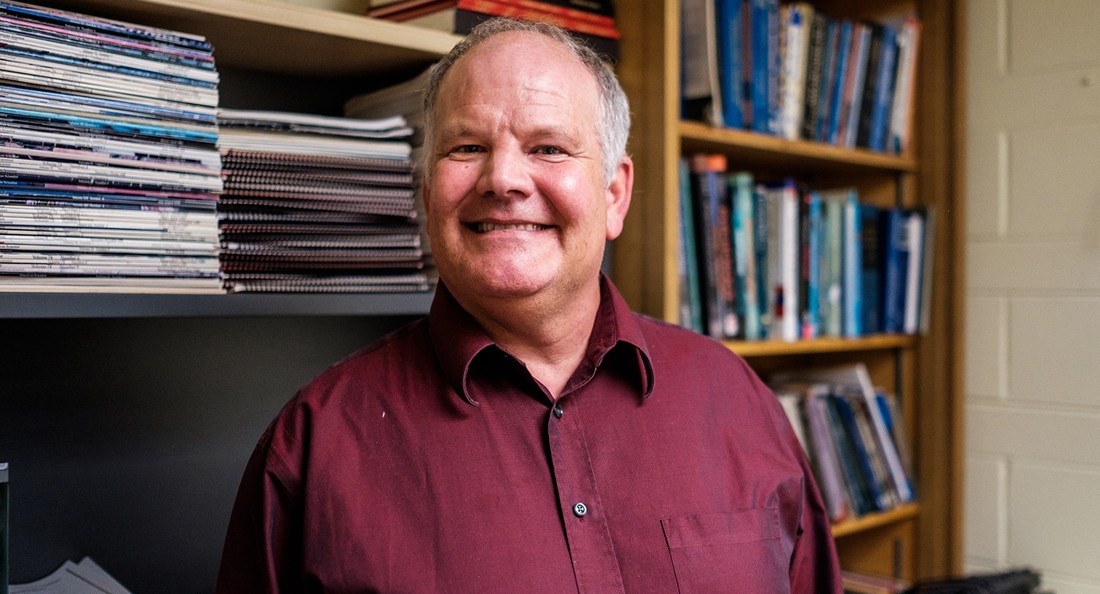PRofile - Doug Williams
Doug Williams, the department chair of psychology, and two of his undergrad students will receive an award for a recent article about how animals tell time.
The award-winning article, titled “Intertrial unconditioned stimuli differentially impact trace conditioning,” was inspired by people’s interest in the appreciation and passage of time.
The study observed how rats acted when they were given signals that a pellet of food was coming into their cage.
“We found that they are actually restraining themselves from responding too early (to getting a pellet),” Williams says.
However, the award-winning professor wasn’t always keen on the idea of psychology. When he first got into the field, he thought psychology was a bunch of nimby-pimbly… a make-it-up-as-you-go kind of thing.
“You can’t really study humans, cause they have free will and just decided what they did, and that’s the way it was. It was sort of outside the scope,” he says.
However, at the age of 21, he went to the labs at the University of Manitoba, where they were doing experiments with rabbits.
“The rabbits were blinking to a signal they would get, an air puff delivered to their eye. And I went ‘oh my god, this is predictable,’” he says. “I had that ‘aha moment.’ People’s behaviour is actually predictable. You can actually predict when behaviour happens.”
Williams continued to study animals, but he’s also done work in human learning. He says some of the same theories to explain animal behaviour can be applied to humans.
Williams says that winning an award for the paper came out of the blue.
“This was a paper that got rejected from a journal and has now appeared in a different journal, and then it wins an award. What can you say?” he says.
Q&A
What was your worst grade in university?: C in English, and I didn’t deserve it. It should’ve been a F. It was totally undeserved.
If you could have any superpower, what would it be?: I kind of like the way Daredevil fights, the way he moves around. He’s completely blind, so I think the way he’s able to co-ordinate his actions using just his hearing and senses other than vision is pretty impressive.
What is the best thing about your work?: The best thing is the ability to study whatever you want to study, and the interaction with students.
What’s your favourite thing about yourself?: Well, obviously I’m tremendously good looking. And you’ll get feedback from the picture you’re going to take and they’re going to say ‘oh yeah, totally.’
What is something you’ve learned from your students?: It’s most obvious when they ask you a question and you go ‘uh … uh ...’ I know nothing. That’s what you learn. The number of questions that you go ‘I’ve never thought of that even. How do you guys think of that stuff?’
Published in Volume 72, Number 2 of The Uniter (September 14, 2017)








